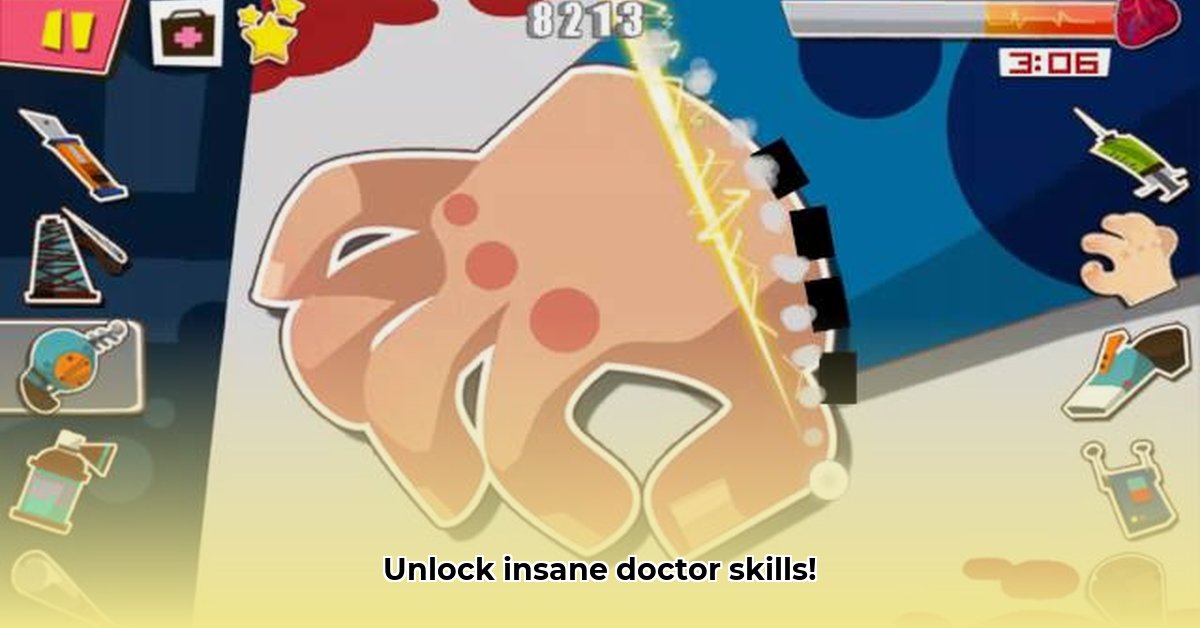
Unveiling the Potential of Online Healthcare Games
The world of online gaming is expanding rapidly, and a surprising niche is emerging: "crazy doctor" games. Platforms like CrazyGames host numerous free-to-play titles that offer simulated medical experiences, ranging from simple, child-friendly hospital games to complex simulations involving diagnoses, procedures, and resource management. While these games offer engaging, interactive learning potential, rigorous research into their educational efficacy is currently lacking. This article examines the current state of this market, its potential impact on medical literacy, and the crucial need for further research to validate its effectiveness.
The Current Landscape of Virtual Medical Training
CrazyGames and similar platforms offer a diverse range of healthcare-themed games. These games vary considerably in complexity, from basic simulations introducing fundamental medical concepts to sophisticated experiences requiring complex decision-making and resource management. The accessibility of these games, largely free-to-play, makes their potential reach incredibly broad. This democratization of access, however, highlights the need for establishing clear standards and guidelines for game development and content accuracy. The current market resembles the "wild west," full of potential but lacking unified oversight and quality control.
Inside the Games: Fun and Games, or Real Learning?
Many "crazy doctor" games employ realistic simulations, placing players in the role of a medical professional facing realistic challenges. These challenges often involve problem-solving components, such as resource management puzzles and complex diagnostic scenarios. While these mechanics can potentially enhance critical thinking and problem-solving skills, the extent to which these games contribute to improved medical knowledge remains largely unproven. Although some anecdotal evidence suggests potential benefits, substantial research is needed to conclusively determine the impact of these games on actual medical literacy.
Engagement and Player Retention: A Crucial Metric
A key factor in determining the effectiveness of these games is player engagement. Unfortunately, quantifiable data on playtime, completion rates, and player retention are currently limited for platforms like CrazyGames. The free-to-play model, while promoting accessibility, may also contribute to lower player engagement due to a reduced sense of commitment. Further research is needed to investigate the factors influencing player retention and to establish reliable benchmarks for measuring engagement. Is it simply the novelty of the game, or are players genuinely learning and retaining information? This question is vital to understanding the true potential of this market.
The Future of Crazy Doctor Games: Actionable Insights
The potential for growth in the online healthcare gaming market is significant. Imagine advanced, highly realistic simulations integrated into medical training programs or accessible games educating the public about vital health information. To realize this potential, however, significant research is required. The following actionable steps are essential for realizing the full promise of this emerging field:
| Stakeholder Group | Short-Term Goals (0-1 year) | Long-Term Goals (3-5 years) |
|---|---|---|
| Game Developers | Improve game design based on player feedback; explore new monetization models. | Develop highly realistic simulations incorporating complex medical cases and advanced procedures. |
| Educators & Healthcare Professionals | Pilot test games in educational and clinical settings to evaluate efficacy. | Integrate validated games into standard medical curricula and training programs. |
| Researchers | Conduct rigorous studies to assess game engagement, knowledge acquisition, and attitude change. | Develop standardized assessment tools and metrics for evaluating educational effectiveness. |
| Investors | Conduct market research and player surveys to assess investment potential. | Invest in high-quality games with proven educational value and positive impact. |
Ethical Considerations: Ensuring Accuracy and Responsibility
The accuracy of medical information presented in these games is paramount. Inaccurate or misleading information could have serious consequences. The development of clear ethical guidelines and standards is essential to ensure that these games are both engaging and responsible. Independent verification of medical content and adherence to established best practices are critical to maintaining the credibility and safety of these educational tools. Just as with any educational material, rigorous fact-checking and peer review are crucial.
Conclusion: A Call for Research and Responsible Development
Online "crazy doctor" games represent a promising avenue for enhancing medical literacy and health awareness. However, the success of this approach hinges on comprehensive research to establish their effectiveness and to develop robust standards for their design and development. Further research is needed to understand game impact, establish effective assessment methods, and establish strong ethical guidelines. Only through rigorous testing and collaboration between developers, educators, researchers, and regulators can we fully realize the potential of this innovative approach to health education.
⭐⭐⭐⭐☆ (4.8)
Download via Link 1
Download via Link 2
Last updated: Monday, May 12, 2025